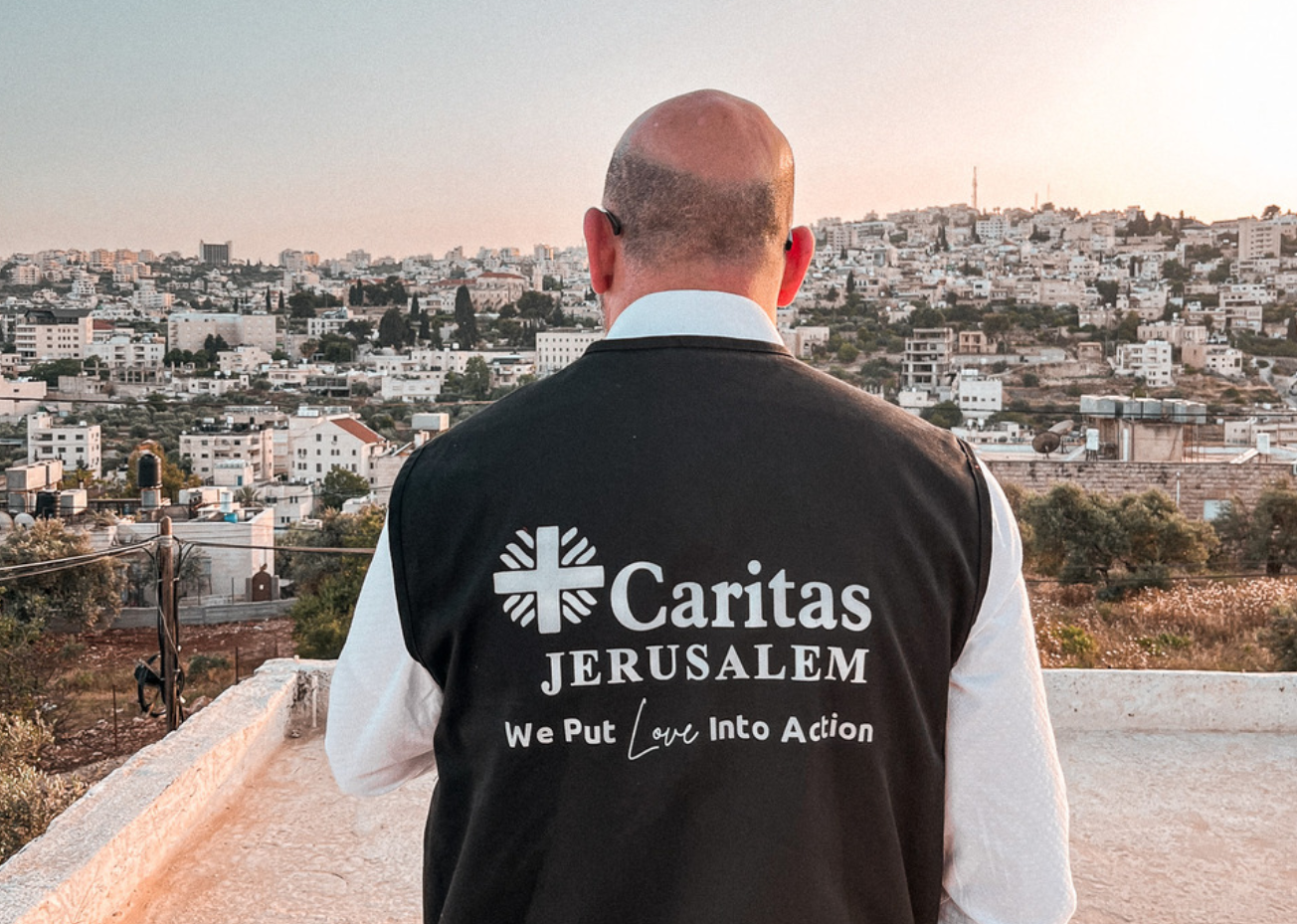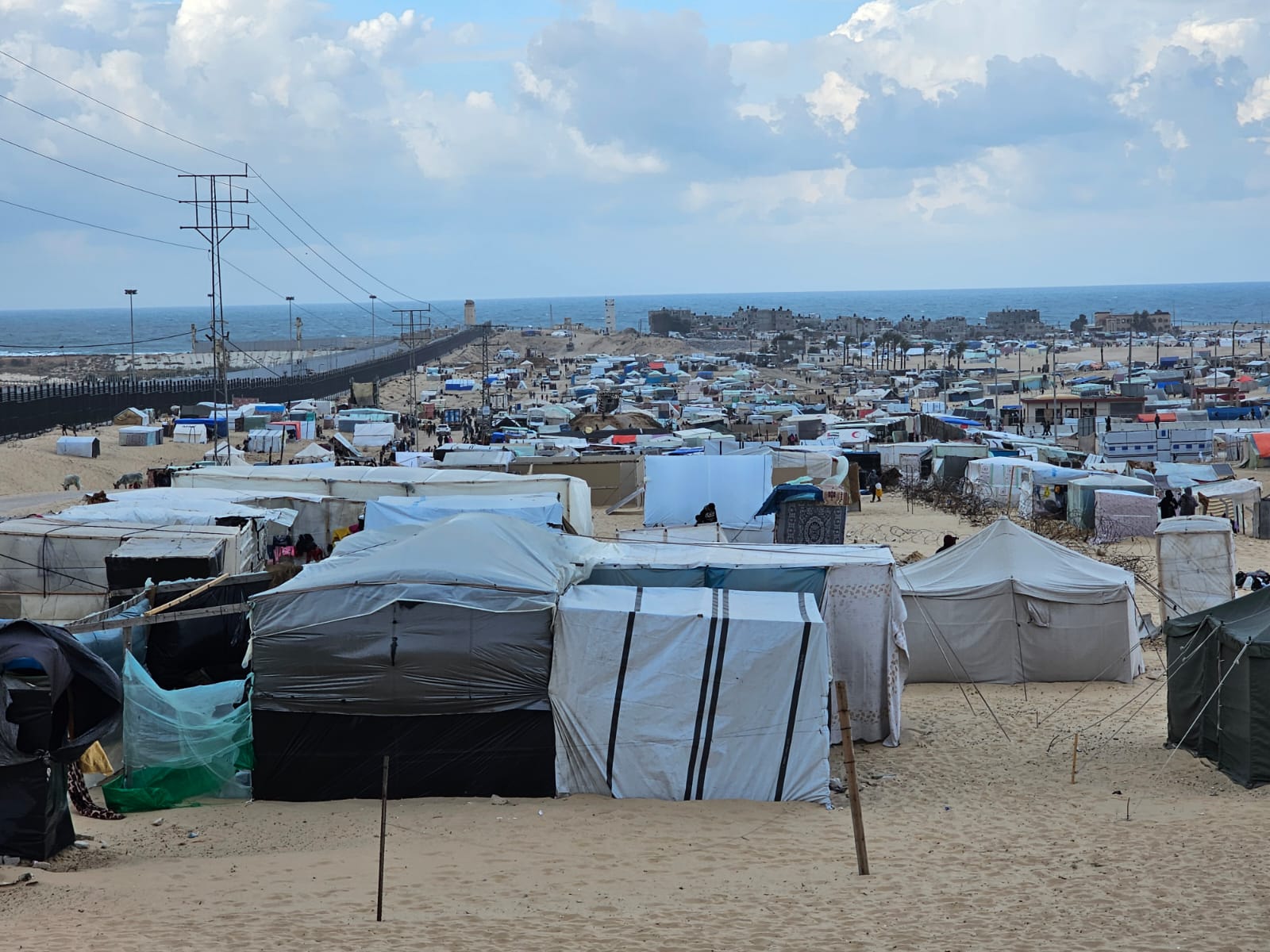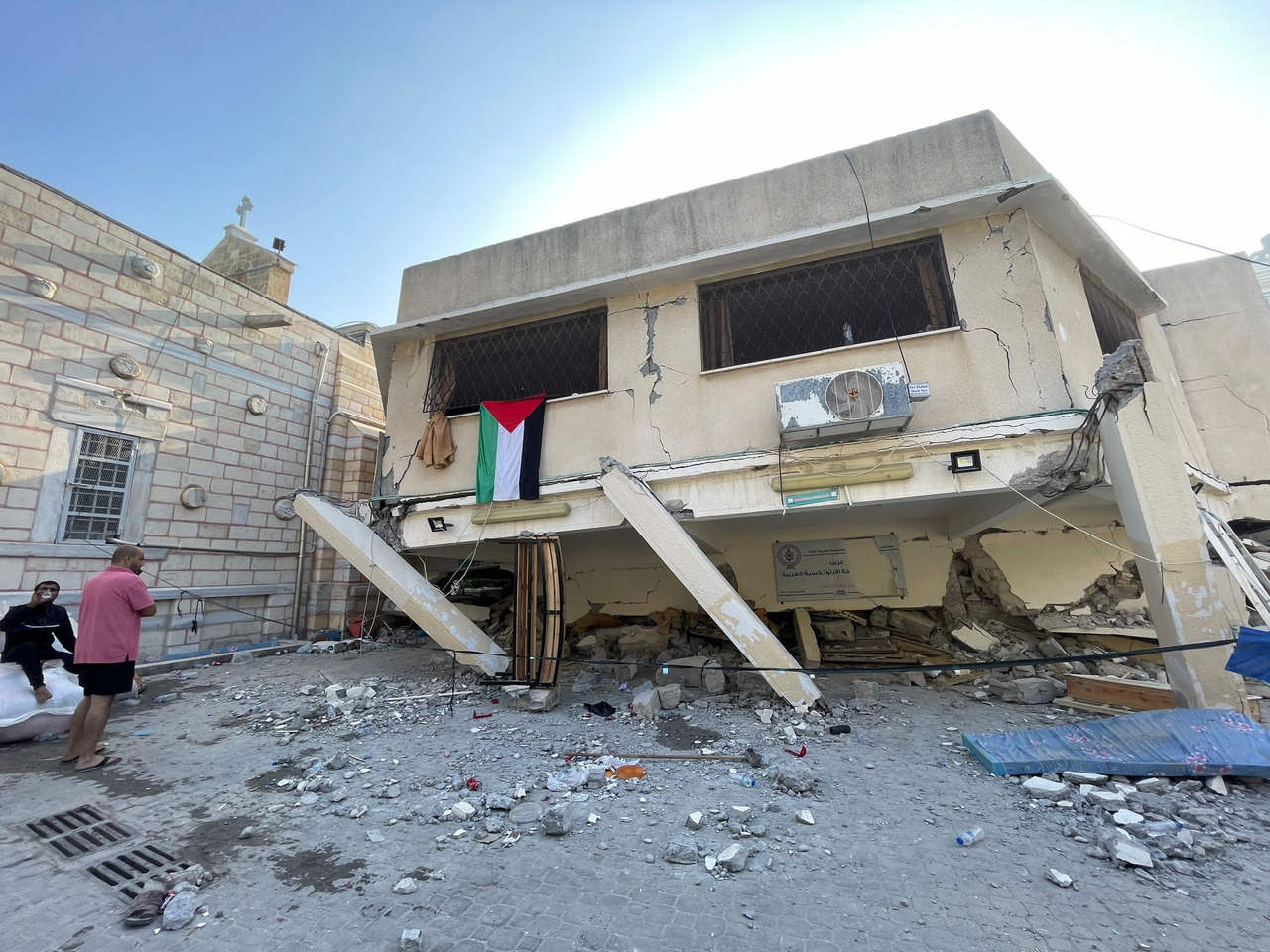Gaza Emergency Appeal
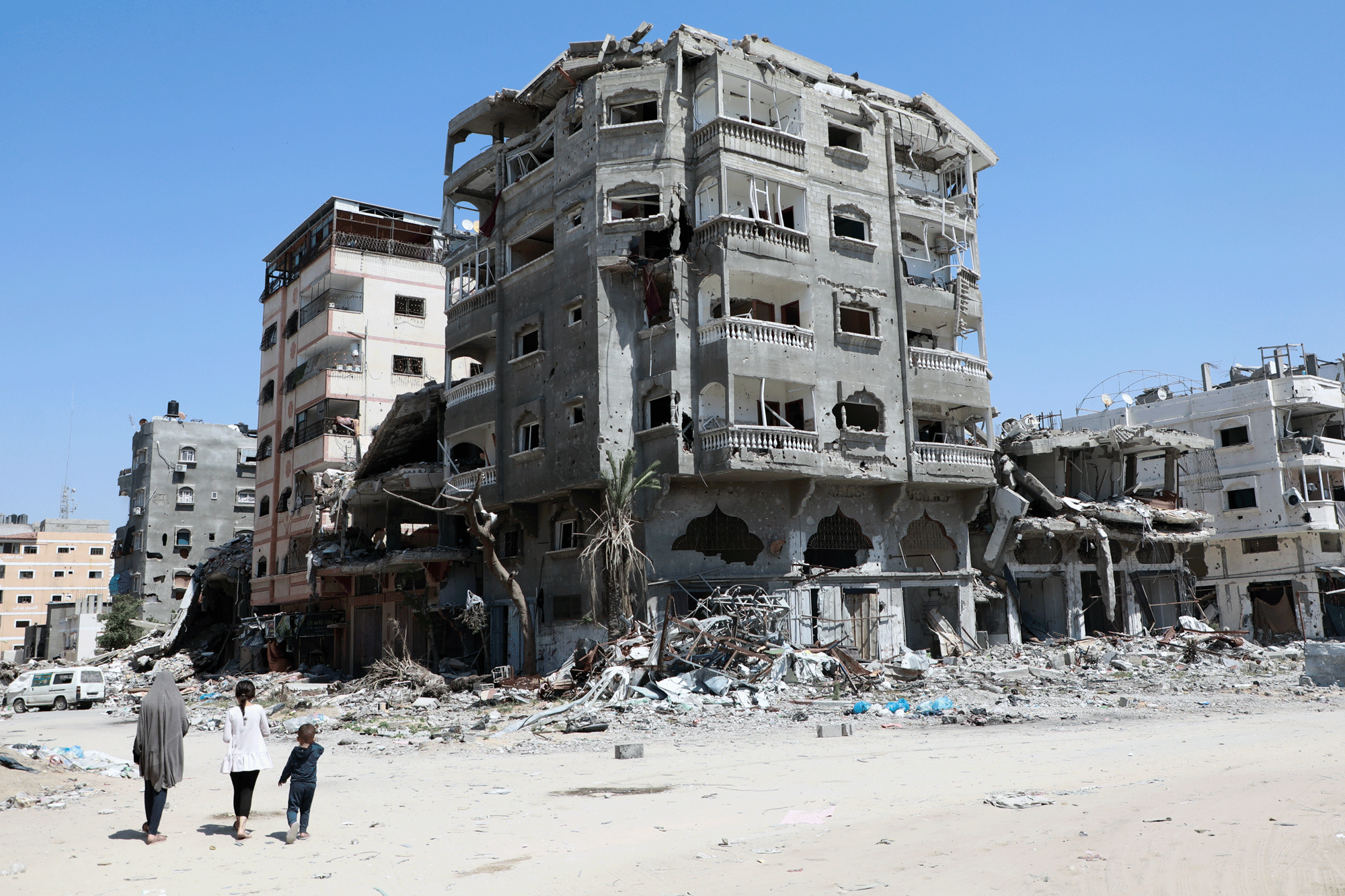
A family walk through the ongoing devastation in Gaza. Photo credit: Caritas Jerusalem.
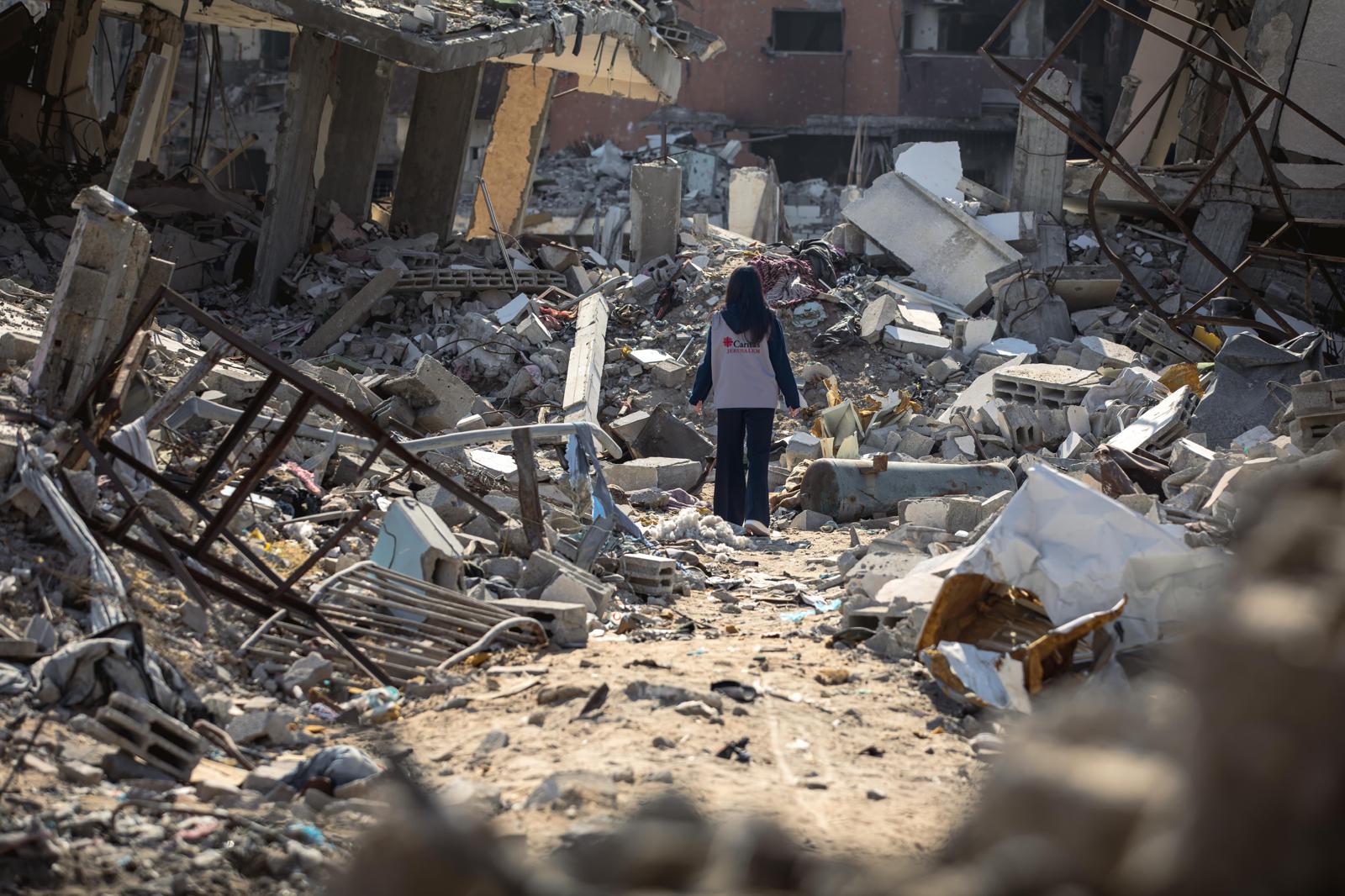
A Caritas Jerusalem staff member surveys the rubble in Gaza. Photo: Caritas Jerusalem
What is the current situation in Gaza?
-
The International Court of Justice (ICJ) has ruled that humanitarian organisations must have urgent, unimpeded access to Gaza, describing the decision as a critical step toward saving lives and restoring dignity to communities devastated by conflict.
- On 13th Oct, Hamas released 20 living hostages, while Israel released nearly 2,000 Palestinian prisoners and detainees, as part of the first phase of the peace agreement.
- A peace deal has been declared in Gaza.
- Famine has been officially declared. This is the most extreme classification and can only be deemed when three critical thresholds are reached – extreme food deprivation, acute malnutrition and starvation-related deaths.
- Families in Gaza are enduring catastrophic conditions as hostilities escalate and basic necessities for survival vanish.
- The Ministry of Health in Gaza and the United Nations reports indicate that deaths from starvation and severe malnutrition are rising daily.
- Amid relentless violence, people are grappling with death, injury, forced displacement and deep psychological trauma.
- 92% of housing has been severely damaged or destroyed. There are tens of millions of tons of rubble that could take over a decade to clear. Thousands of dead remain trapped under this rubble.
- Gaza is the most dangerous place in the world for children. Over 17,000 children have been killed.
- More than 2 million people are now crammed into an area smaller than 17 square miles, with 88% of the territory under Israeli military control or designated for evacuation.
- Despite dangerous and challenging conditions, our partners on the ground are continuing to deliver emergency aid and are adapting their approach where it is needed.
Suffering in Gaza
Over 62,000 people
have been killed in Gaza, including 18,000 children.
Over 100,000 people
have been injured.
1.9 million people
have been displaced, the equivalent of 9 out of every 10 residents.
92% of housing
has been severely damaged or destroyed.
Our partners are on the ground providing vulnerable communities with:
Food and water provisions
Emergency Shelter
Household items including mattresses and blankets
Health and Psychosocial Support
How your donation helps support Gaza's most vulnerable
In partnership with Catholic Relief Services (CRS), we have supported:
Over 860,000 people in Gaza and thousands more across the region.
Over 820,000 people with food parcels.
Over 156,000 people with bedding supplies.
Over 115,000 people with hygiene supplies.
What are the major issues people are facing in Gaza?
- Food deprivation has reached the most catastrophic level measurable, famine. Deaths from malnutrition and starvation are increasing daily.
- Homes, hospitals and essential water and sanitation infrastructure have been destroyed.
- Gaza has become the most dangerous place in the world to be a child, according to UNICEF.
- Residents are also enduring lack of access to medical care, safe shelter and clean water.
- There is no safe place left in Gaza.
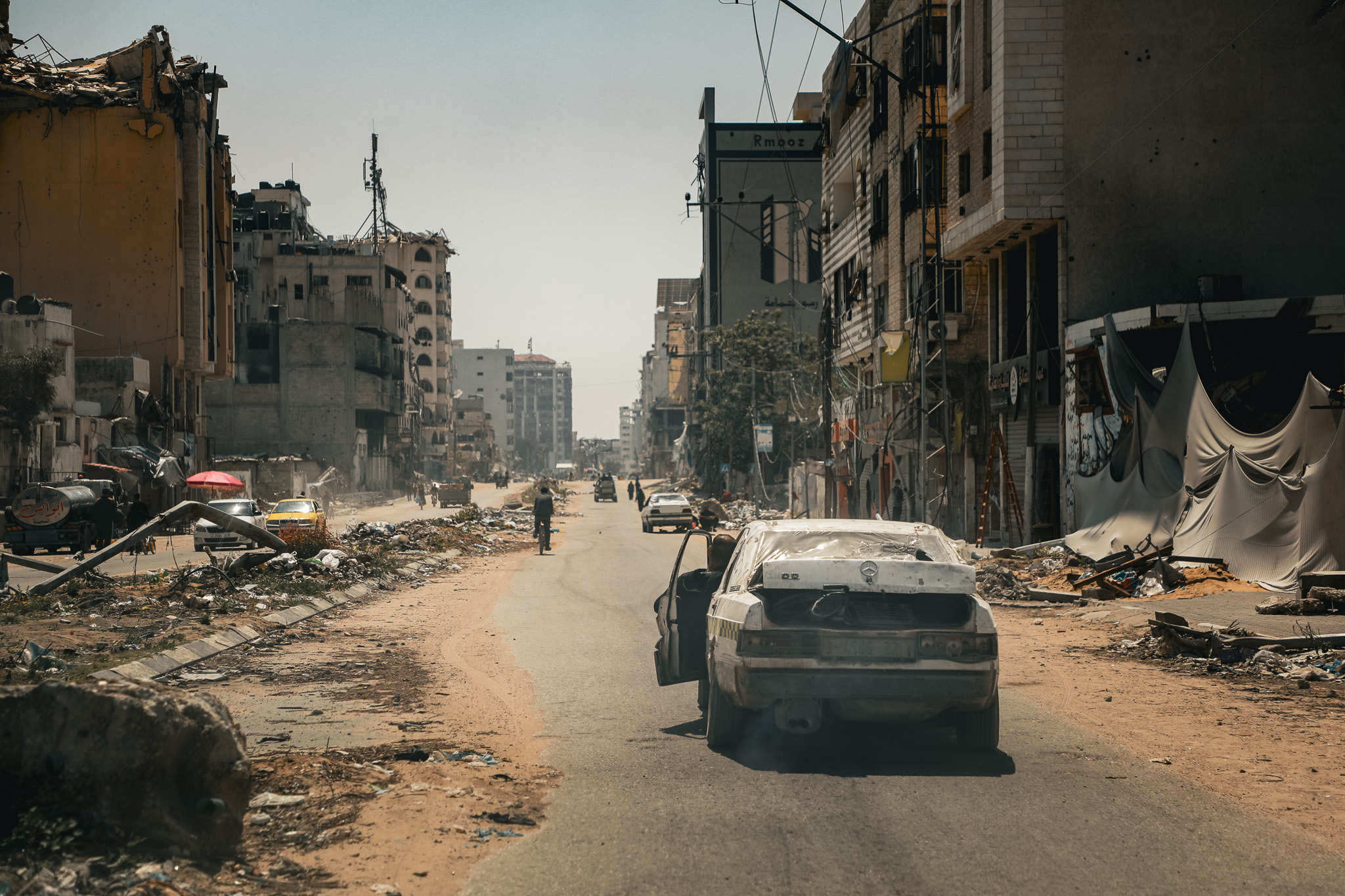
A burnt-out car in a destroyed neighbourhood in Gaza. Photo credit: Caritas Jerusalem.
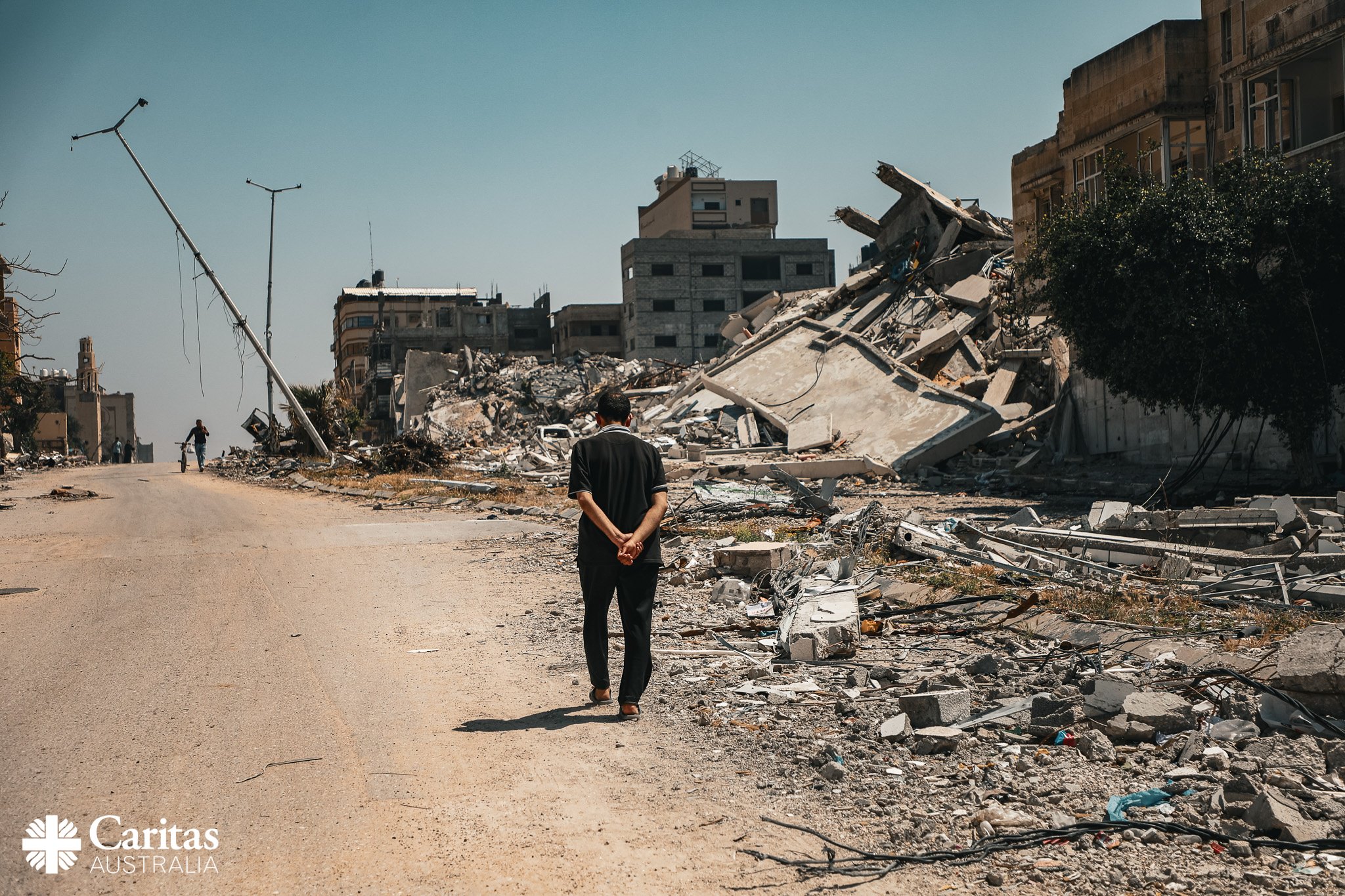
A man walks beside destroyed buildings in Gaza photo credit: Caritas Jerusalem.
Critical needs: what Palestinians in Gaza need most right now
Ongoing attacks and displacement have created an urgent need for:
✔️ Safe shelter for displaced families
✔️ Emergency food and clean water
✔️ Hygiene kits and essential medicines
✔️ Psychosocial support for trauma recovery
What is Caritas Australia's response?
- Our efforts are responsive to the rapidly-changing context, and mindful of people’s holistic needs—both physical and emotional—at a time of tremendous uncertainty. Our partners on the ground are working tirelessly to provide urgent assistance to people displaced and affected by the war in Gaza.
- Caritas Jerusalem and CRS are able to continue providing aid and support to people in Gaza and the West Bank, despite restrictions. They continue to adapt programming to reflect needs, restrictions and context.
- Caritas Jerusalem and CRS are providing rehabilitation services to medical facilities and are providing psychosocial support to communities and individuals.
- Caritas Jerusalem recently received medical supplies from WHO and are able to distribute these supplies withing Gaza.
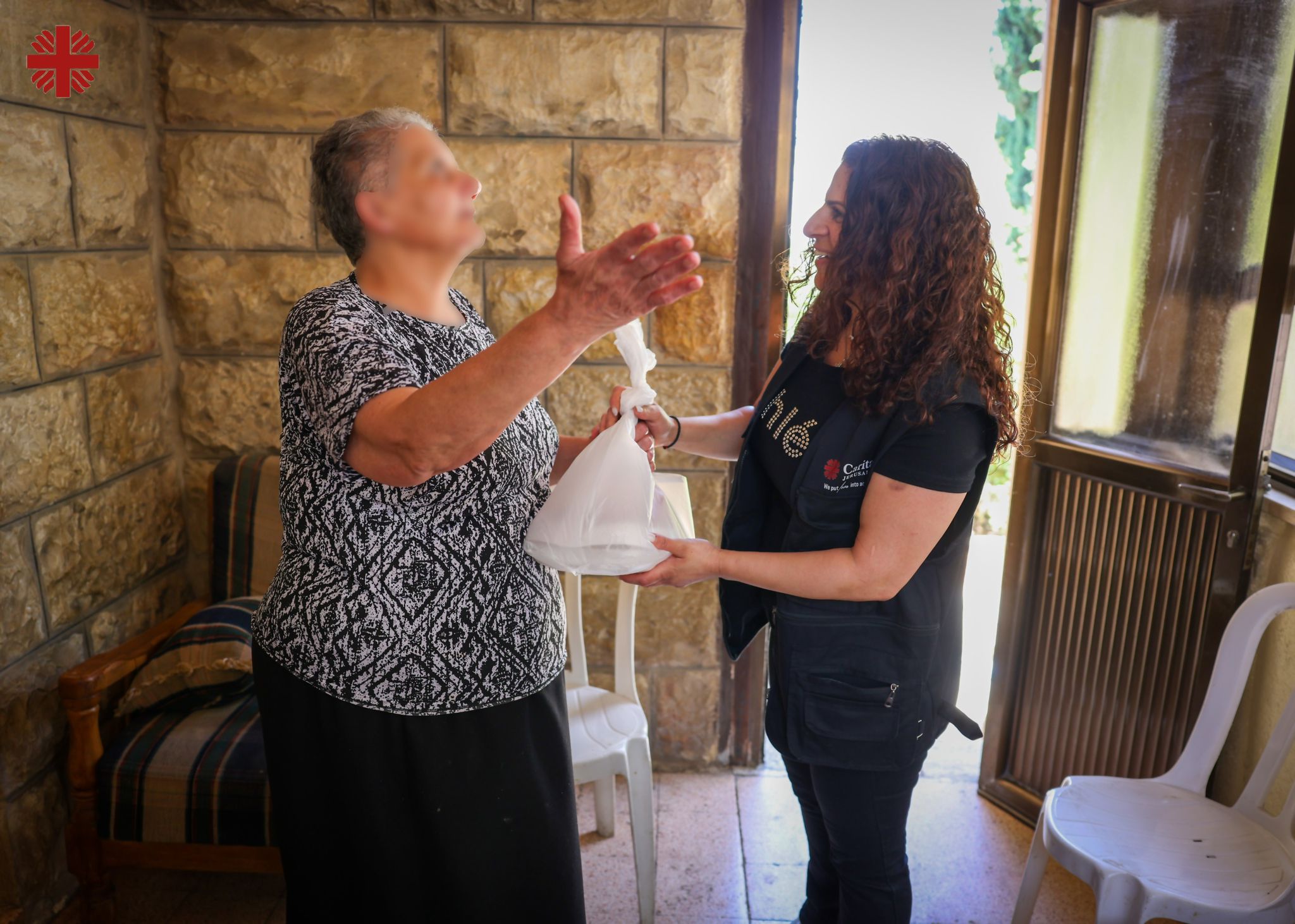
Caritas Jerusalem volunteers distributing food to the elderly in the West Bank. Photo: Caritas Jerusalem
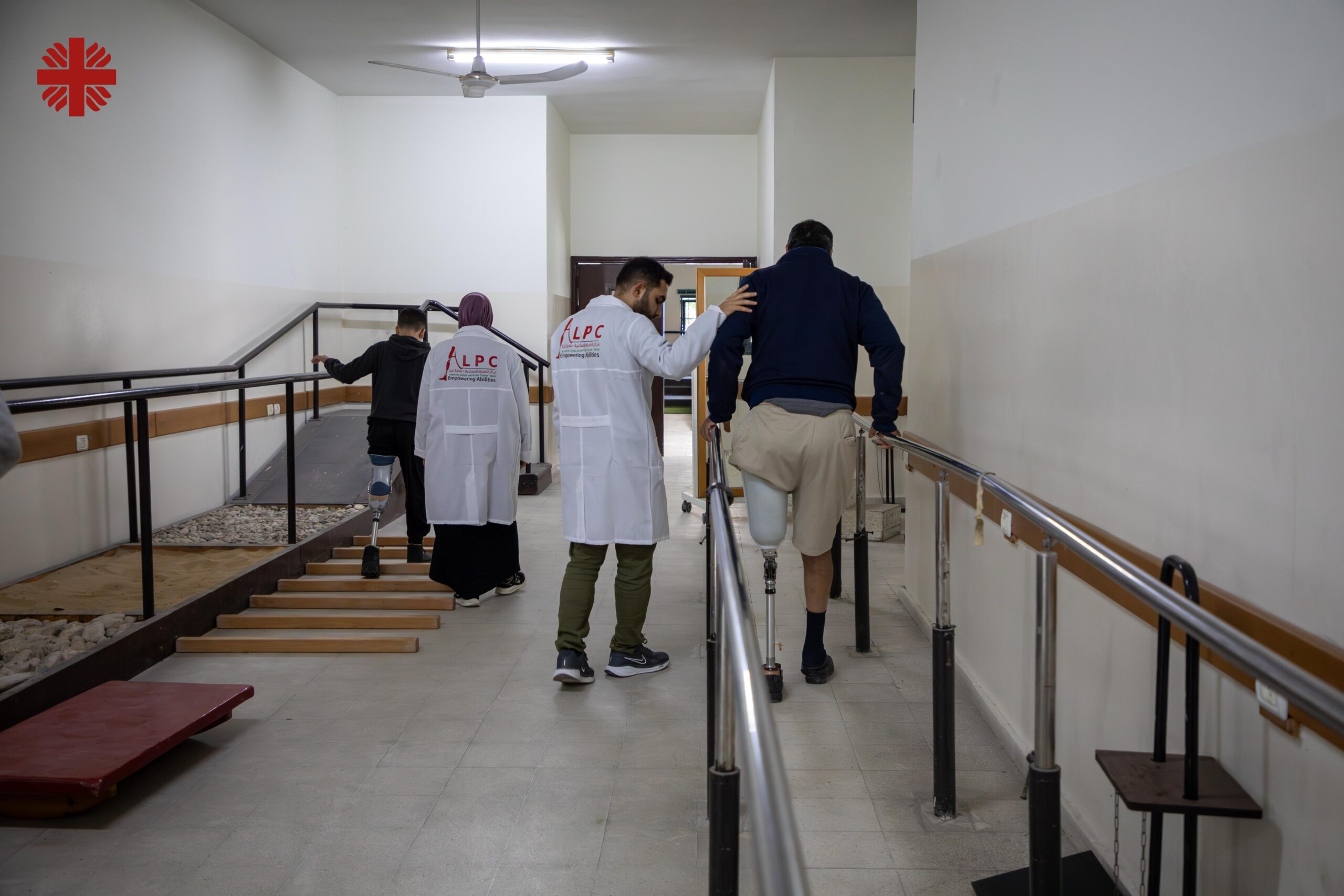
Specialists assist a man and a young boy as they relearn how to walk with their artificial legs. Photo: Caritas Jerusalem
Restoring hope: support for amputees in Gaza
In October 2024, the UN described Gaza as being “home to the largest cohort of child amputees in modern history.” Over 4,500 people have undergone amputations due to the current conflict, including at least 800 children.
Amputees have faced life changing injuries with little medical support as the medical system in Gaza has nearly collapsed. Two-thirds of healthcare facilities have either been destroyed or rendered non-functional. Access to essential medical supplies, including prosthetics, remains severely restricted, further exacerbating the suffering of the affected population.
We are supporting our partner Caritas Jerusalem in a partnership with the Artificial Limbs and Polio Center. This partnership will deliver urgently needed prosthetic limbs to 140 people, most of them children. These life-changing prosthetics help restore mobility and hope in the face of overwhelming loss.
“These artificial limbs are not just a physical support but also a symbol of resilience. For many children, receiving a prosthetic limb offers hope for a better future, helping them to regain mobility and independence in the face of overwhelming adversity.” - Caritas Jerusalem.
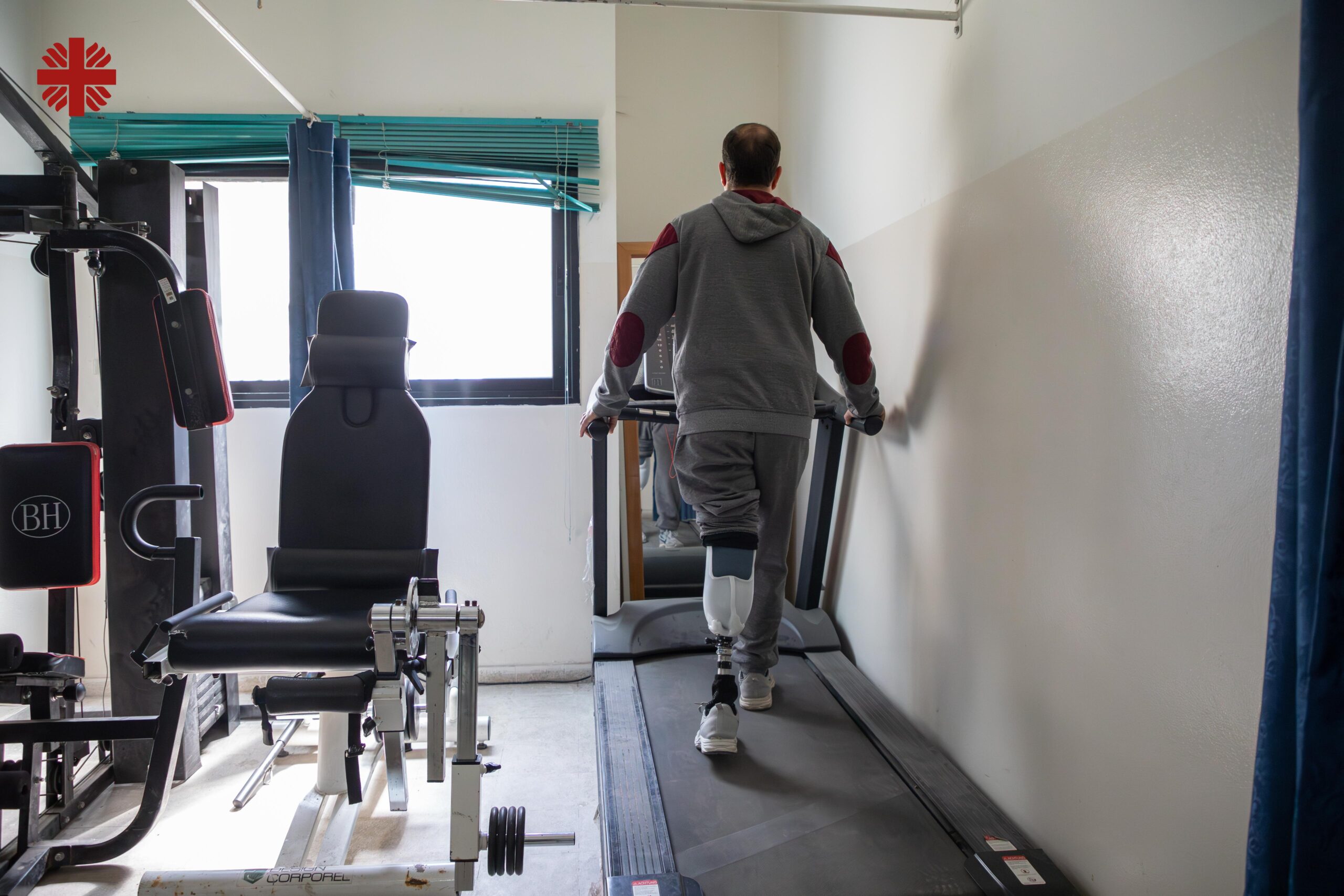
A man on a treadmill working on physiotherapy following the fitting of an artificial limb. Photo: Caritas Jerusalem
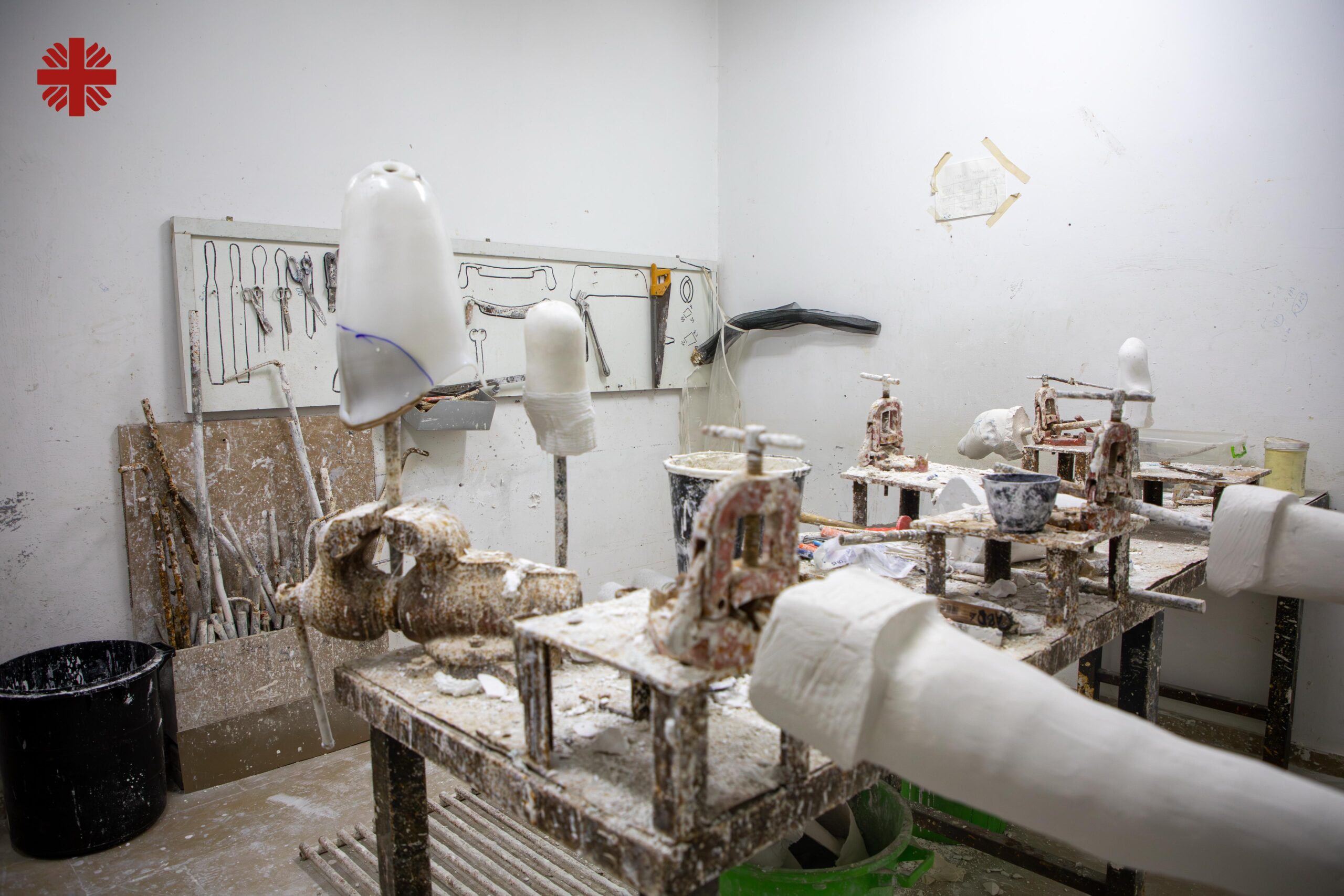
Protheses in various stages of production. Photo: Caritas Jerusalem
Khamees, a youth who participated in the program, received an artificial limb after losing his left leg. He said of being entered into the program, “I was surprised and happy, I went home overjoyed and slept feeling truly happy.”
Khamees also shared these inspiring words, “One must be strong, have high spirits. Be strong and never give up. Thank you, Caritas Jerusalem. I hope you continue to help those in need of prosthetic limbs, just as you helped me walk again.”
This work is part of Caritas Jerusalem’s broader mission to strengthen health and resilience in the Holy Land.
Every donation to our Gaza appeal helps provide essential medical aid and long-term support to families devastated by war. Your generosity can give a child the chance to walk again, and help a family take the first step toward healing and rebuilding their lives.
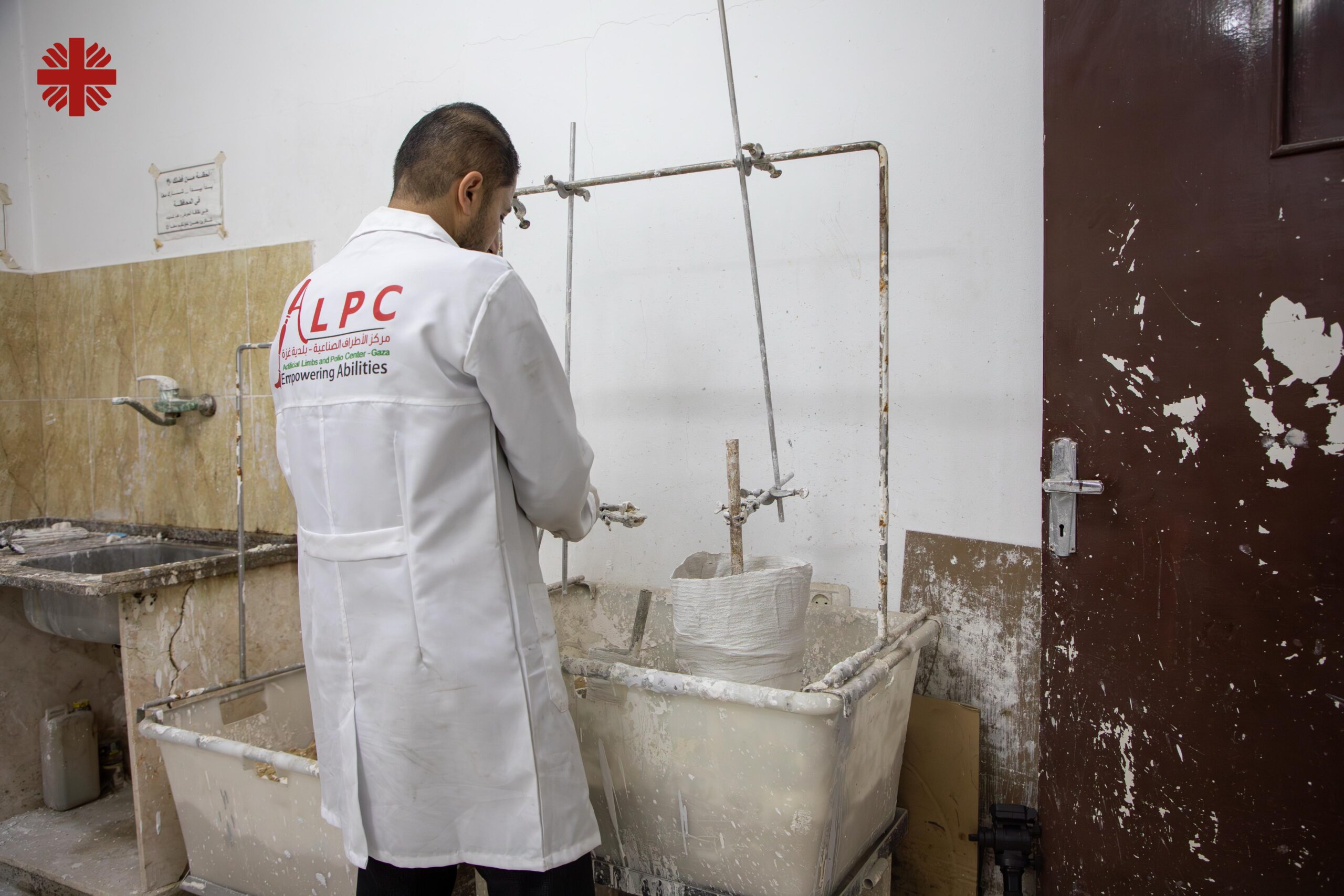
A specialist works on casting a prosthetic. Photo: Caritas Jerusalem
Humanitarian toll of the Gaza war
📌 Demographic Impact
-
7% of those killed have been older people.
-
15% of those killed have been women.
-
17,000 children have been killed.
📌 Hunger Crisis
-
Deaths from malnutrition and starvation are rising daily.
📌 Impact on Shelter & Protection
-
1 million children are in need of mental health and psychosocial support.
-
92% of surveyed housing units have been damaged or destroyed.
- 1.8 million people are in need of emergency shelter and essential household items.
How your donation helps
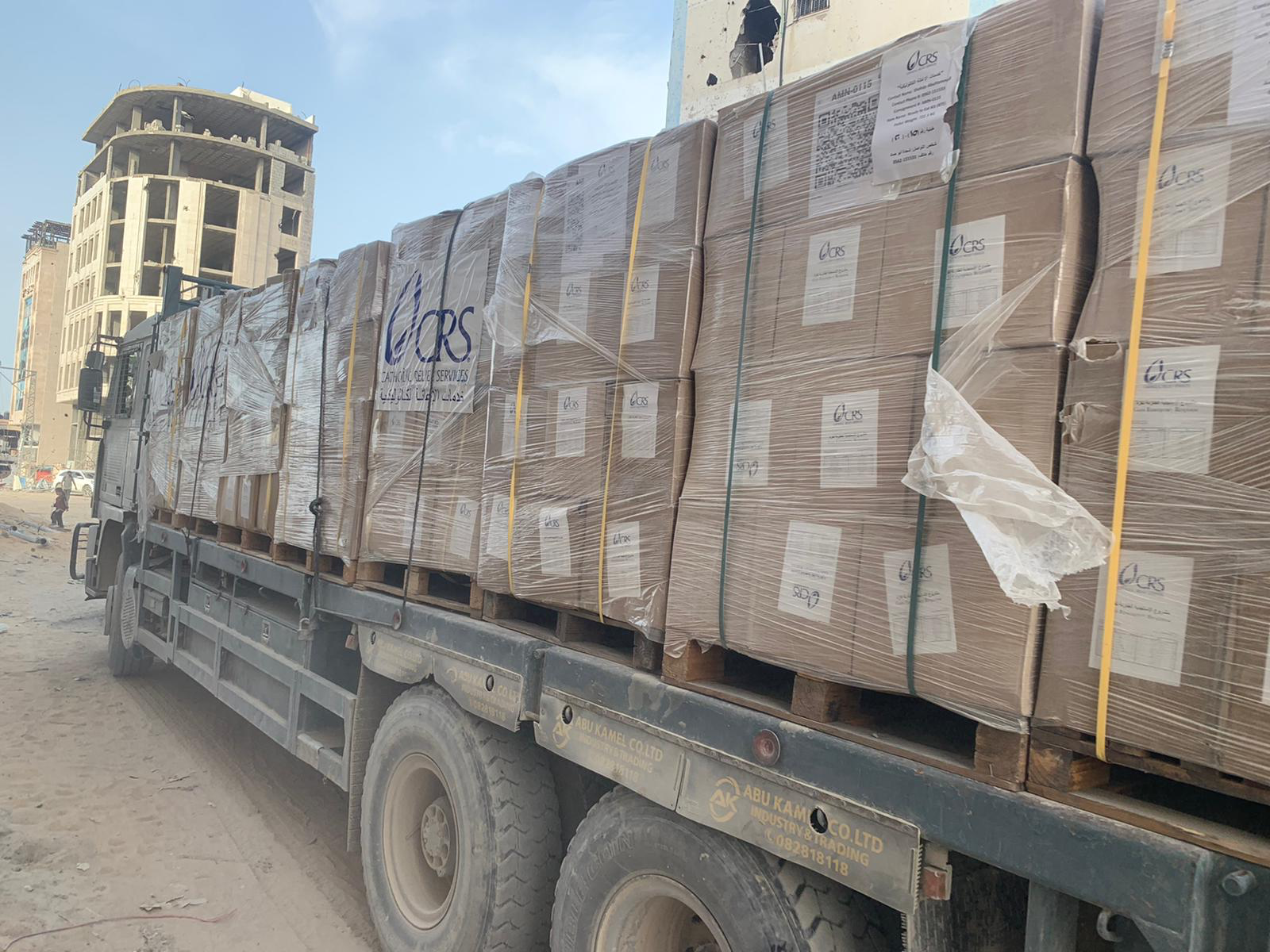
Supplies supported by the Gaza Appeal entering Gaza. Photo Credit: CRS.
Stand with Gaza—Donate Today
Your donation can help Gaza's most vulnerable with emergency shelter, essential supplies like bedding and winterisation kits, psychosocial support and more.
Donate now to help families in Gaza
On the ground in Gaza with CRS
Our partner CRS Gaza have visited the town of Beit Hanoun in northern Gaza where 93% of housing units have been destroyed.
Perspectives on a year of war in Gaza: Ahmad Al-Daya
Ahmad Al-Daya, Media and Communication at Caritas Jerusalem in Gaza, speaks of repeated displacement and the shelling of his family, resulting in his brother losing his leg.
Our advocacy
Along with several other aid organisations, we are calling on the Australian Government to:
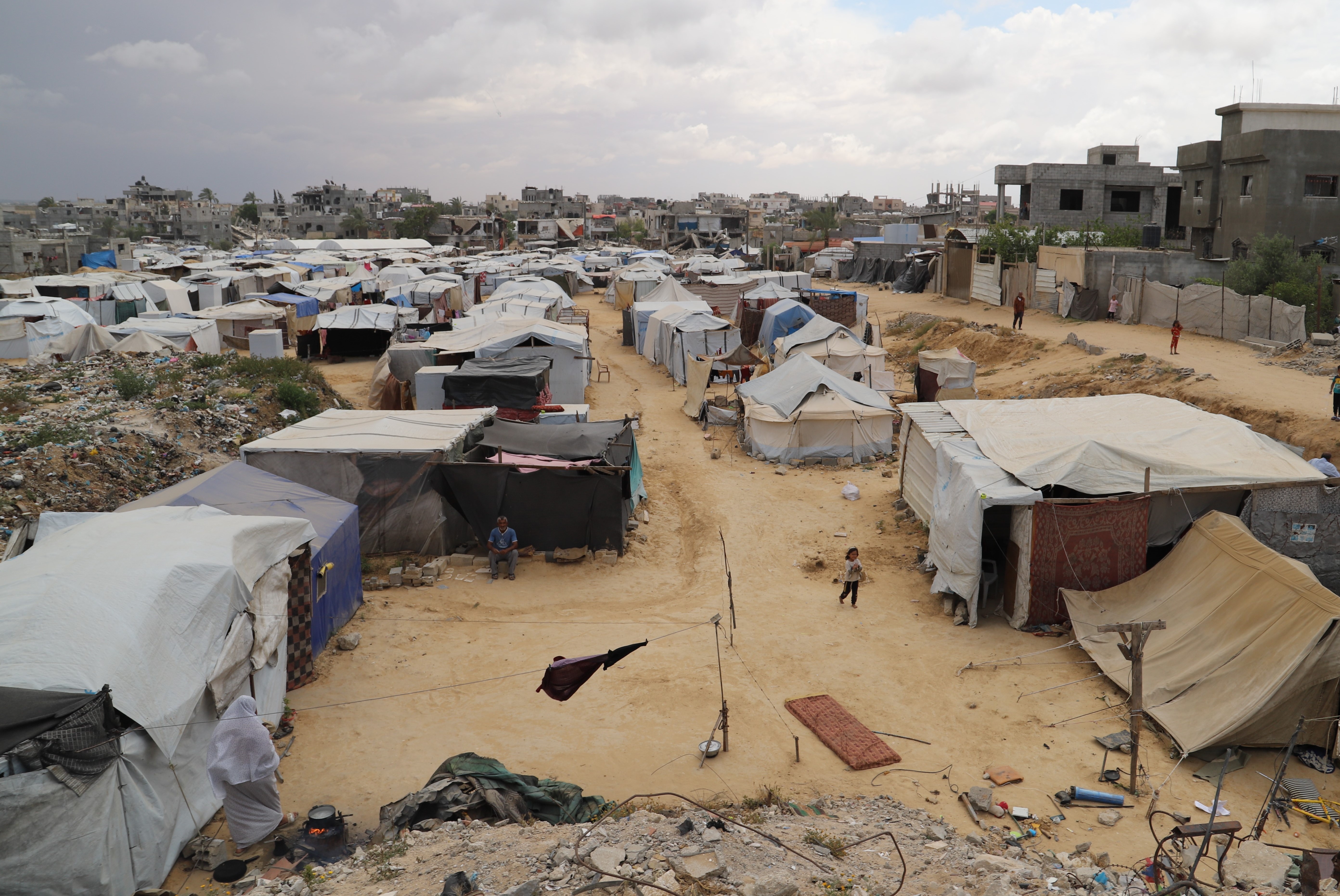
Aerial view of a shelter site in the South of Gaza supported by Caritas partners. Photo credit: CRS.
Continue to demand
an immediate and permanent ceasefire.
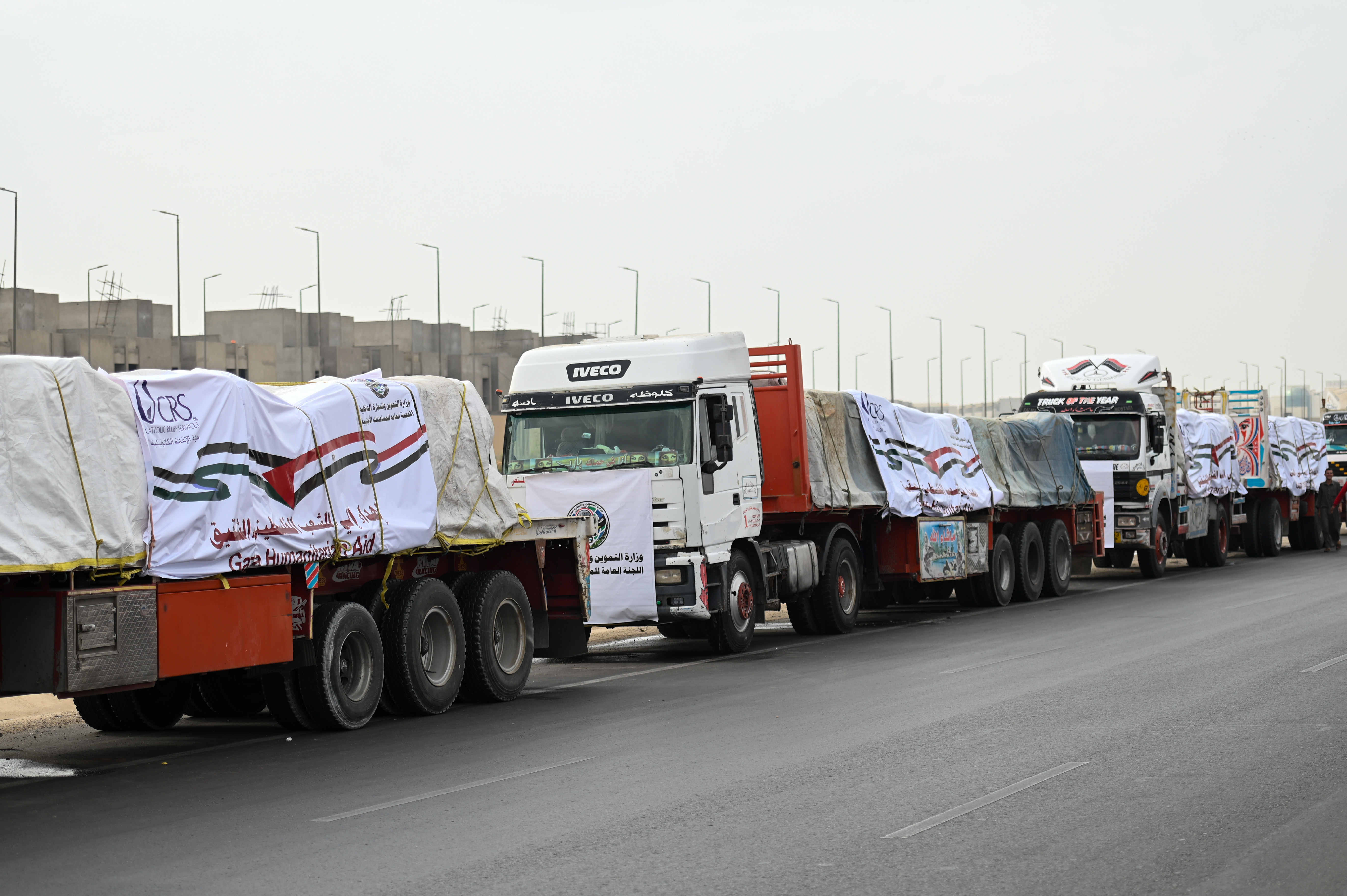
A queue of Caritas Australia's partner trucks containing blankets, mats and mattresses bound for Gaza. Photo Credit: Sayed Hassan for CRS.
Join the United Kingdom, Canada, and France
in strengthening their position against Israel's military operations and denial of humanitarian assistance to civilians in Gaza and be clear that Australia will take concrete action should Israel not cease its offensive and lift restrictions on the principled delivery of aid.
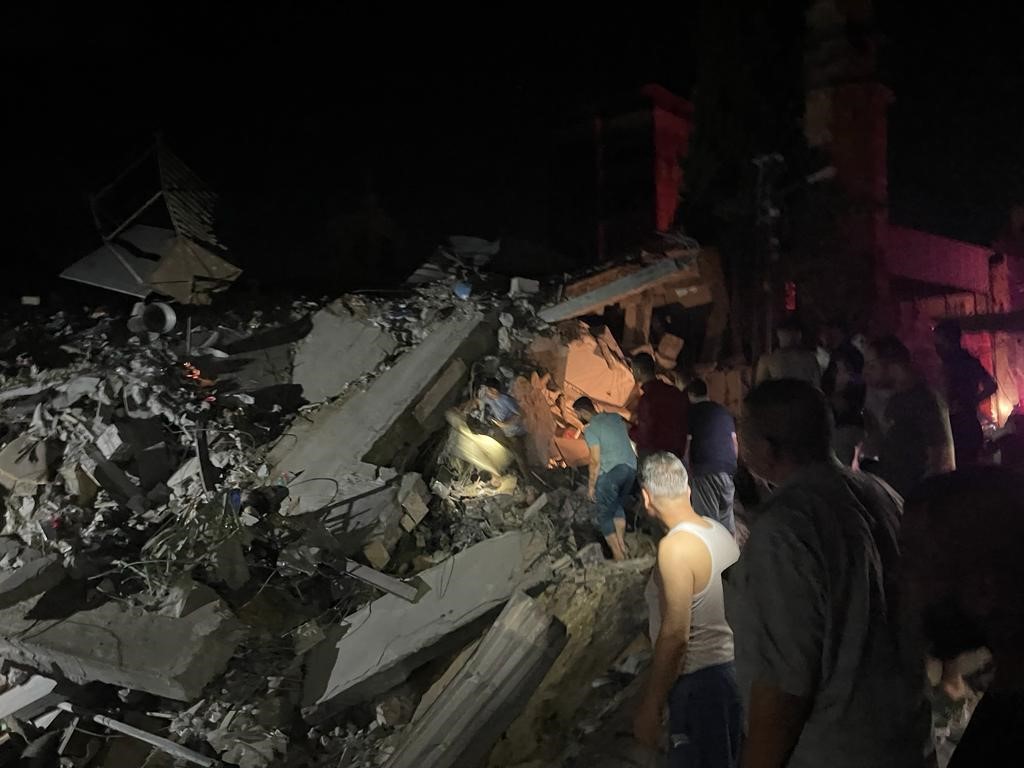
Aftermath of an air strike on the Porphyrios Church Hall in Gaza Photo Credit Caritas Jerusalem
Use Australia’s voice
to publicly denounce breaches of international humanitarian law in the Occupied Palestinian Territory and continue to call for international law to be upheld.
Our long-term work in Gaza
80% of the population of Gaza were already dependant on international aid prior to October 7, 2023. Our partners have been on the ground bringing humanitarian support to the population of Gaza for decades, and have the infrastructure and logistical knowledge to ensure aid gets to where it is needed most.
Social justice for Gaza
Our work is shaped by the principles of Catholic Social Teaching
The Dignity of the Human Person
The Common Good
Subsidiarity and Participation
Solidarity
Preferential Option for the Poor
Economic Justice
Care for our Common Home
Promotion of Peace
FAQ
Your donation will be used to support our partners on the ground in Gaza who are delivering support to vulnerable communities with emergency shelter, health and medical support, and access to clean water, food and blankets, mattresses and winter items as a priority.
Choose an Australian charity that is working in Gaza or has direct partnerships with organisations that are working in Gaza that aligns with your values. To ensure your donation is going to be used effectively, check their website to see what percentage of funding goes to programs. Reputable charities will have this information readily available.
You can help people in Gaza by donating to a charity that is working in Gaza or has direct partnerships with organisations that are working in Gaza that aligns with your values. Your voice has power. Speak up about the emergency when and where you are comfortable to do so. You can also contact your local MP to express your views and ask that they support a ceasefire.
No, our partners on the ground are best placed to decide where funds are directed based on their expertise and first-hand experience of the priority needs of the population, and the current context and access situation.
Our partners have been working on the ground in Gaza for decades providing humanitarian assistance and we have deep experience ensuring donations get where they are needed in a politically-neutral manner. We are DFAT accredited and ACFID signatories, ensuring that we have responsible governance of funds at the highest level.
Yes. All donations over $2 are tax-deductible for Australia.
Our partners in Gaza include CRS and Caritas Jerusalem. As part of the Caritas Network, we work closely with our partners to understand the needs of the local population and use funding to support local initiatives.
No, we do not accept donations of goods. Goods can cause logistical issues and block the arrival of much needed aid. Donations of money allow us to ensure that what is arriving is what the population needs, while supporting the local economy.
Yes, we provide aid to those who need it most, regardless of background, religion, gender or sexuality. We prioritise the most vulnerable community members including children, the elderly, and people living with disabilities.
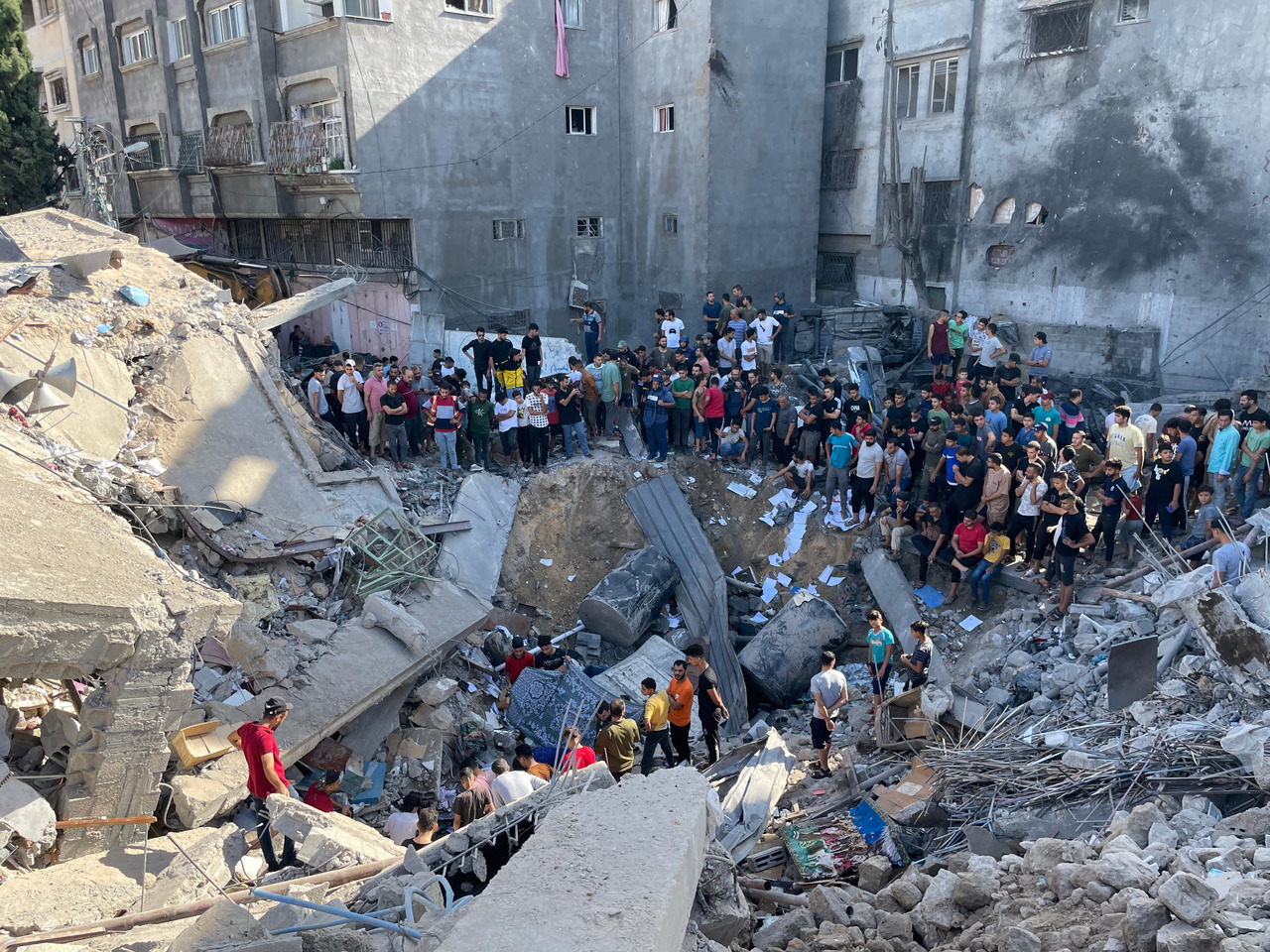
Rubble and damage after an airstrike in Gaza. Photo: Caritas Jerusalem.
Where does my donation go?
The funds you donate to this appeal go to Caritas Australia’s Emergency Response Fund and will be used to provide humanitarian assistance to communities affected by this crisis. Should circumstances prevent us from delivering aid to this emergency, or if excess funds remain after the crisis, donations will be directed to other emergencies where Caritas has humanitarian operations.





